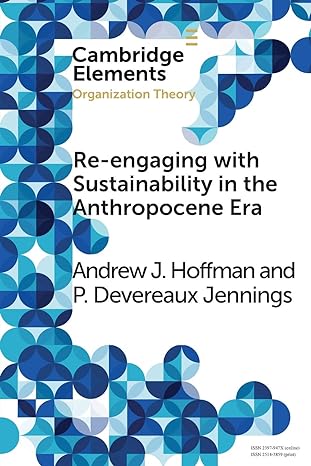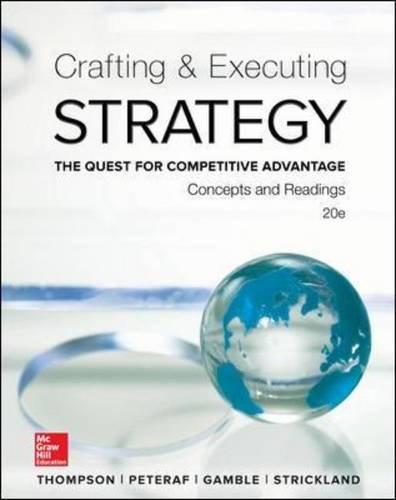Go back


Organizational Theory Re Engaging With Sustainability In The Anthropocene Era(1st Edition)
Authors:
Andrew J. Hoffman ,p. Devereaux Jennings

Cover Type:Hardcover
Condition:Used
In Stock
Shipment time
Expected shipping within 2 DaysPopular items with books
Access to 30 Million+ solutions
Free ✝
Ask 50 Questions from expert
AI-Powered Answers
✝ 7 days-trial
Total Price:
$0
List Price: $21.99
Savings: $21.99(100%)
Solution Manual Includes
Access to 30 Million+ solutions
Ask 50 Questions from expert
AI-Powered Answers
24/7 Tutor Help
Detailed solutions for Organizational Theory Re Engaging With Sustainability In The Anthropocene Era
Price:
$9.99
/month
Book details
ISBN: 1108727697, 978-1108727693
Book publisher: Cambridge University Press
Get your hands on the best-selling book Organizational Theory Re Engaging With Sustainability In The Anthropocene Era 1st Edition for free. Feed your curiosity and let your imagination soar with the best stories coming out to you without hefty price tags. Browse SolutionInn to discover a treasure trove of fiction and non-fiction books where every page leads the reader to an undiscovered world. Start your literary adventure right away and also enjoy free shipping of these complimentary books to your door.
Book Summary: Re-engaging with Sustainability in the Anthropocene Era applies organization theory to a grand challenge: our entry into the Anthropocene era, a period marked not only by human impact on climate change, but on chemical waste, habitat destruction, and despeciation. It focuses on institutional theory, modified by political readings of organizations, as one approach that can help us navigate a new course. Besides offering mechanisms, such as institutional entrepreneurship, social movements, and policy shifts, the institutional-political variant developed here helps analysts understand the framing of scientific facts, the counter-mobilization of skeptics, and the creation of archetypes as new social orders.
Customers also bought these books
Frequently Bought Together
Top Reviews for Books
Keith lebanowski
( 4 )
"Delivery was considerably fast, and the book I received was in a good condition."










